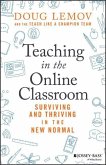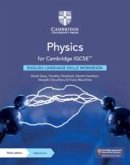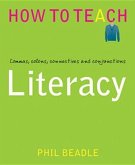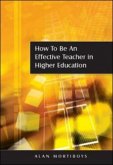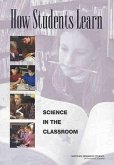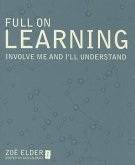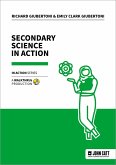- Broschiertes Buch
- Merkliste
- Auf die Merkliste
- Bewerten Bewerten
- Teilen
- Produkt teilen
- Produkterinnerung
- Produkterinnerung
Explores the main difficulties in the language of science and examines ways to aid students in retaining, understanding, reading, speaking and writing scientific language.
Andere Kunden interessierten sich auch für
![Teaching in the Online Classroom Teaching in the Online Classroom]() Doug LemovTeaching in the Online Classroom22,99 €
Doug LemovTeaching in the Online Classroom22,99 €![Physics for Cambridge Igcse(tm) English Language Skills Workbook with Digital Access (2 Years) Physics for Cambridge Igcse(tm) English Language Skills Workbook with Digital Access (2 Years)]() David SangPhysics for Cambridge Igcse(tm) English Language Skills Workbook with Digital Access (2 Years)17,99 €
David SangPhysics for Cambridge Igcse(tm) English Language Skills Workbook with Digital Access (2 Years)17,99 €![Literacy Literacy]() Phil BeadleLiteracy18,99 €
Phil BeadleLiteracy18,99 €![How to Be an Effective Teacher in Higher Education How to Be an Effective Teacher in Higher Education]() Alan MortiboysHow to Be an Effective Teacher in Higher Education36,99 €
Alan MortiboysHow to Be an Effective Teacher in Higher Education36,99 €![How Students Learn How Students Learn]() National Research CouncilHow Students Learn52,99 €
National Research CouncilHow Students Learn52,99 €![Full on Learning Full on Learning]() Zoe ElderFull on Learning25,99 €
Zoe ElderFull on Learning25,99 €![Secondary Science in Action Secondary Science in Action]() Emily Clark GiubertoniSecondary Science in Action14,99 €
Emily Clark GiubertoniSecondary Science in Action14,99 €-
-
-
Explores the main difficulties in the language of science and examines ways to aid students in retaining, understanding, reading, speaking and writing scientific language.
Produktdetails
- Produktdetails
- Verlag: Open University Press
- Seitenzahl: 162
- Erscheinungstermin: März 2001
- Englisch
- Abmessung: 229mm x 151mm x 17mm
- Gewicht: 296g
- ISBN-13: 9780335205981
- ISBN-10: 0335205984
- Artikelnr.: 22353077
- Herstellerkennzeichnung
- Libri GmbH
- Europaallee 1
- 36244 Bad Hersfeld
- gpsr@libri.de
- Verlag: Open University Press
- Seitenzahl: 162
- Erscheinungstermin: März 2001
- Englisch
- Abmessung: 229mm x 151mm x 17mm
- Gewicht: 296g
- ISBN-13: 9780335205981
- ISBN-10: 0335205984
- Artikelnr.: 22353077
- Herstellerkennzeichnung
- Libri GmbH
- Europaallee 1
- 36244 Bad Hersfeld
- gpsr@libri.de
Professor Jerry Wellington taught science in Tower Hamlets, London before moving to the University of Sheffield where he has extensive experience of teaching on PGCE courses, MEd and EdD work, INSET for teachers and mentor training programmes. His most recent publications include Teaching and Learning with Multimedia (Routledge 1997), Practical Work in School Science: which way now? (Routledge, 1998), Teaching and Learning: Secondary Science (Routledge 2000) and Science Dictionary (Questions Publishing 1998). He has also written several science textbooks for schools. Dr Jonathan Osborne is a senior lecturer in science education at King's College London. Prior to that he was an advisory teacher with the ILEA and taught physics in secondary schools for nine years in Inner London. He is a co-editor of several books - the most recent being Good Practice in Science Teaching: What Research Has to Say (Open University Press, 2000) and the report Beyond 2000 Science Education for the Future. He has a wide ranging set of research interests including young children's understanding of science, pupils' attitudes to science and teaching about the history and philosophy of science. He is the author of several articles on alternatives to practical work and regularly runs workshops on this theme and writing in science.
Acknowledgements
Introduction
the importance of language in science education
Looking at the language of science
Talk of the classroom
language interactions between teachers and pupils
Learning from reading
Writing for learning in science
Discussion in school science
learning science through talking
Writing text for learning science
Practical ploys for the classroom
Last thoughts...
References
Appendix
Index.
Introduction
the importance of language in science education
Looking at the language of science
Talk of the classroom
language interactions between teachers and pupils
Learning from reading
Writing for learning in science
Discussion in school science
learning science through talking
Writing text for learning science
Practical ploys for the classroom
Last thoughts...
References
Appendix
Index.
Acknowledgements
Introduction
the importance of language in science education
Looking at the language of science
Talk of the classroom
language interactions between teachers and pupils
Learning from reading
Writing for learning in science
Discussion in school science
learning science through talking
Writing text for learning science
Practical ploys for the classroom
Last thoughts...
References
Appendix
Index.
Introduction
the importance of language in science education
Looking at the language of science
Talk of the classroom
language interactions between teachers and pupils
Learning from reading
Writing for learning in science
Discussion in school science
learning science through talking
Writing text for learning science
Practical ploys for the classroom
Last thoughts...
References
Appendix
Index.


